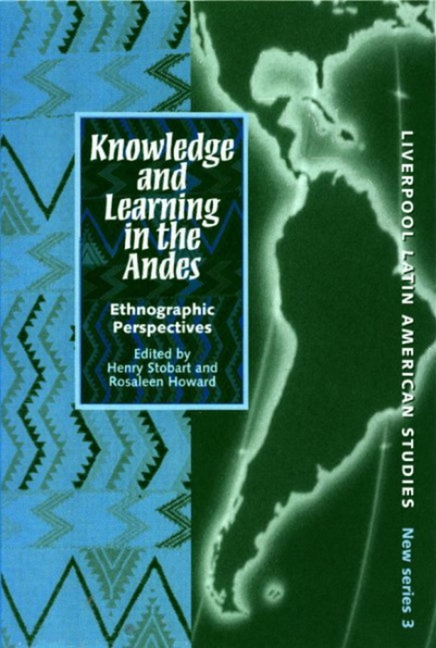Book contents
- Frontmatter
- Contents
- List of illustrations
- List of contributors
- Introduction
- Part I: Multiple Media in the Creation and Transmission of Knowledge
- Part II: Knowledge, Power and Authority
- Part III: Conflicting Paradigms of Knowledge
- 7 Why Nazario is Leaving School: Community Perspectives on Formal Schooling in Rural Bolivia
- 8 Local Knowledge in Health: The Case of Andean Midwifery
- 9 Learning and Re-Learning How to Plant: The Impact of New Crops on the Spread and Control of New Agricultural Knowledge in the Ecuadorian Andes
- Index
7 - Why Nazario is Leaving School: Community Perspectives on Formal Schooling in Rural Bolivia
from Part III: Conflicting Paradigms of Knowledge
- Frontmatter
- Contents
- List of illustrations
- List of contributors
- Introduction
- Part I: Multiple Media in the Creation and Transmission of Knowledge
- Part II: Knowledge, Power and Authority
- Part III: Conflicting Paradigms of Knowledge
- 7 Why Nazario is Leaving School: Community Perspectives on Formal Schooling in Rural Bolivia
- 8 Local Knowledge in Health: The Case of Andean Midwifery
- 9 Learning and Re-Learning How to Plant: The Impact of New Crops on the Spread and Control of New Agricultural Knowledge in the Ecuadorian Andes
- Index
Summary
Formal schooling for mother-tongue Quechua-, Aymara- and Guaraní-speaking children in rural Bolivia has undergone a major revolution since 1994, with the introduction of Intercultural Bilingual Education (EIB) as a central axis of the Education Reform Law (Ley 1565 of 7 July 1994). The Reform began to be implemented in 1995, building on the Intercultural Bilingual Education Project (PEIB) which had been piloted in a limited number of schools in the five preceding years. The changes were also due to the trend of growing recognition of indigenous linguistic and cultural rights in the region, which in turn determined the implementation of education reforms (López 2000: 15); and the availability of economic resources through the intervention of economic agencies such as the Inter-American Development Bank, which on 16 November 1994 approved a total cost of US$ 204.2 million for the Programa de Reforma Educativa, which is projected to last 20 years (I-ADB n.d.). Among the central pedagogical tenets of the Reform, in addition to the official use and study of Quechua, Aymara or Guaraní in the classroom, are the principles of constructivist, pupil-centred learning, and the design of more culturally relevant curricula.
In this chapter I shall discuss some of the results of fieldwork which I conducted in the núcleo school of El Paredón, district of Tarabuco, department of Chuquisaca, during 1995 and 1996, at a time when the school was just entering its transition to the Reform model. Due to its previous participation in the PEIB, El Paredón had been selected to take part in the Reform from the outset. As shall be seen, during that early phase, the pedagogical ideals referred to above had not yet been fully adopted. Moreover, between school authorities on the one hand, and community members (comunarios) on the other, very differing perceptions of what formal schooling in the rural community stands for, and is good for, were in evidence. Their conflicting discourses about the function of formal education make up the central theme of this chapter.
- Type
- Chapter
- Information
- Knowledge and Learning in the AndesEthnographic Perspectives, pp. 141 - 165Publisher: Liverpool University PressPrint publication year: 2002



